

Goran Lucic, lingustic assistant in the Croatian-Slovenian lawyer-linguist tandem team
I started working for the European institutions in 2014, moved around a lot as contract/temporary agent in the Council and the European Commission, before finally joining the Quality of Legislation Directorate (DQL) in 2019 as assistant to lawyer-linguists.
Working in the DQL is quite challenging and interesting at the same time, as we are the final instance before something gets published in the Official Journal of the EU, so we have to be very attentive and have an eye for eventual typos and/or other kinds of mistakes.
The thing about working here that I like a lot is that, although we are in a multicultural environment, in our rather small tandem teams we are in constant touch with our mother-tongue.
Another very important aspect is that, on the one hand, we are not at all micromanaged by the hierarchy, while, on the other hand, managers do take care of their staff's needs by empowering them to get adequate training to guarantee the best possible service.
Lingustic assistant in the Croatian-Slovenian lawyer-linguist tandem team at the Council of the European Union
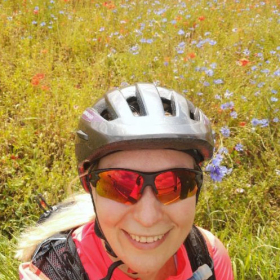
Lavinia-Oana B. (Corte dei conti europea)
"Il Lussemburgo è sicuramente un paese molto accogliente. In un luogo che ospita persone di 170 nazionalità diverse non vi sentirete mai stranieri. Se amate la natura e le attività all'aria aperta, in Lussemburgo troverete le condizioni ideali per una tranquilla vita familiare, ricca di esperienze stimolanti! A me piace molto andare in bici e camminare, e qui ci sono così tanti percorsi che è impossibile provarli tutti :)
Date un'occhiata a:
https://www.visitluxembourg.com/experience-luxembourg/nature-outdoors/cycling,
https://www.komoot.it/guide/547/fantastici-percorsi-per-bici-da-corsa-in-lussemburgo,
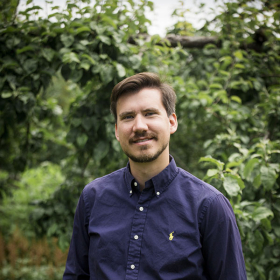
Johannes B., responsabile delle politiche
Storico di formazione, sono un esperto in materia di diritti fondamentali. Lavoro alla Commissione europea dal 2015, prima come vicecoordinatore per la lotta contro l'antisemitismo e ora come responsabile dei programmi di finanziamento dei valori dell'UE, dei diritti fondamentali e della memoria europea.
Ho iniziato la mia carriera presso la DG Istruzione e cultura, nell'ufficio del direttore generale aggiunto. Durante i 6 anni alla Commissione ho lavorato in vari dipartimenti, tra cui l'unità "Politiche per la gioventù" della DG Istruzione e cultura e l'unità "Politica di asilo" della DG Migrazione e affari interni.
Il mio lavoro è molto vario: spazia dalla presentazione dei finanziamenti dell'UE alle organizzazioni della società civile e ai ministeri, alla definizione di nuovi meccanismi di finanziamento per sostenere le attività di lotta contro il razzismo, la discriminazione e l'antisemitismo, alla garanzia di uno stretto allineamento tra le nostre priorità politiche in materia di uguaglianza e il sostegno che offriamo alle parti interessate.
Durante i miei studi universitari in storia ebraica presso l'Università Ludwig-Maximilian di Monaco di Baviera ho trascorso un anno accademico come borsista presso l'Università ebraica di Gerusalemme. Ho anche conseguito un master in studi europei presso il Collegio d'Europa di Varsavia (Natolin). Sono attivo nel più grande movimento giovanile filoeuropeo, i Giovani federalisti europei, anteriormente come presidente della commissione per gli affari esteri. Sono un ex studente della American Council on Germany’s Young Leaders’ Conference e partecipo ancora al gruppo di lavoro sulla diversità, l'equità e l'inclusione di tale istituzione.
Ingrid, Estonian Language Unit
I studied to be a primary school teacher in Estonia, but became instead an assistant in the Estonian Language Unit of the Translation Service of the Council in Brussels for 13 years, from where I have now progressed to become a Local Resources Manager in the same unit.
I never really planned to live and work abroad, but life decided otherwise. I came to Belgium almost 17 years ago and have been working in the Council for 14 years. The Council is a multicultural and multilingual working place. The Estonian Language Unit (as are other language units in the Council) is special because most of my colleagues are Estonian. Working here gives me a chance to stay in touch with Estonian culture and my mother tongue. After so many years living in Belgium I have grown to love this small and peculiar country, mostly known for its chocolate and beer. But those who are willing to search further will find that there is much more to it.
Estonian Language Unit of the Translation Service of the Council
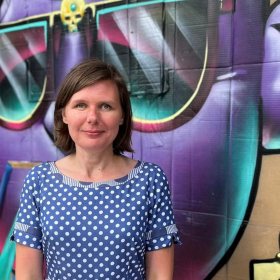
Reet S. (Parlamento europeo)
"Quando passeggio per le strade del centro di Bruxelles mi piace scoprire i dipinti che sono stati realizzati su alcuni muri delle case. Raffigurano personaggi più o meno noti dei fumetti, ma non solo. Sono a disposizione di tutti. Basta guardarsi intorno e alzare lo sguardo dal telefonino :-)"
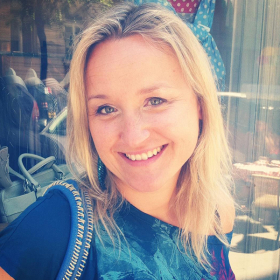
Luca Eszter K. (SEAE)
"Bruxelles è diventata la mia città preferita e si è rivelata particolarmente conveniente per la vita di famiglia grazie alle sue infrastrutture, ai luoghi adatti ai bambini e alle tante attività che offre a tutte le generazioni. Ha interessanti musei, splendidi parchi, programmi per i più piccoli in tutte le stagioni, per non parlare dei bei festival che offrono intrattenimento a tutta la famiglia. Inoltre, le ottime scuole e il contesto diversificato aiutano i bambini ad immergersi in un'atmosfera multiculturale del tutto particolare consentendo loro di imparare diverse lingue in un'unica città! Un altro aspetto per me importante è che si tratta di un posto molto accogliente nei confronti degli animali da compagnia!"
Sílvia Feliciano, Council of the European Union
My name is Silvia and I have been working for the Council of the European Union for almost 10 years. I started my career in the institutions in the Legal Service of the Council, in the Department of Quality of Legislation — DQL. Here I learned how to work in an international and multicultural environment, where respect for others and cooperation prevail. In DQL our mission is to check the drafting quality of the Council’s legal texts and to ensure that all texts, in the 24 official EU languages, are legally and linguistically consistent. Ensuring the quality of legal acts is about safeguarding that they will be applied equally across the EU. Over this time, I have also had the opportunity to participate in various projects and to be an in-house trainer. In the Council we have the necessary tools to pursue our professional and personal development. At first, coming to Brussels was a real challenge. I quickly discovered, however, that Brussels is a very lively city, with a great cultural offer, with lots of parks and gardens, where you can stroll, do sport or meet with friends for a walk or picnic. Here we find all the opportunities an European capital has to offer in parallel with the quality of life of a “small” city.
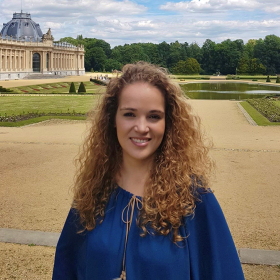
Tessa P. (Consiglio dell'Unione europea)
"Quello che mi piace di più a Bruxelles è che c'è spazio per tutti, sia che a uno piaccia il trambusto della città o la tranquillità della natura. Sia per i bambini che per gli adulti la città offre un'ampia gamma di eventi culturali, attività e musei che si possono svolgere in città. Mi piace in particolare passeggiare tra gli stagni di Ixelles, godermi i grandi giardini limitrofi all'abbazia di La Cambre e fare una piacevole passeggiata nel Bois de la Cambre. Un altro dei miei luoghi preferiti per sfuggire alla vita della città è il Parco di Tervuren, un parco facilmente accessibile con i trasporti pubblici e ricco di storia, dove si può visitare il Museo dell'Africa, fare un'escursione, andare in bicicletta o semplicemente godersi un picnic con familiari e amici".
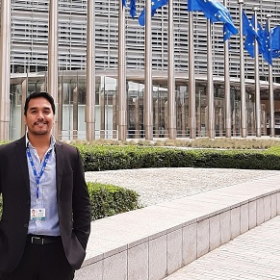
Carlos T. (Commissione europea)
Intellettualmente stimolante, coesa e socialmente attiva: questi i tre aggettivi che sceglierei per definire il Lussemburgo e le sue infinite opportunità, sul piano sia accademico che professionale. Inoltre, non mancano certo le occasioni per la vita sociale, con gli innumerevoli locali del Grund e di Clausen e le loro molteplici offerte gastronomiche e musicali. Insomma, come spesso dico per scherzare: "Non venire a Lussemburgo: non soltanto ti farai degli amici che diventeranno la tua famiglia, ma vivrai anche dei momenti indimenticabili. Quindi, no, non venire ?"
Maria K. (Commissione europea)
"Per me una delle cose più belle del Lussemburgo è la natura. Ci sono un sacco di spazi verdi a portata di mano: vigneti, boschi o sentieri tra le montagne (non troppo alte). Le mie località preferite sono Vianden, con il castello che domina la città e il fiume Our, e la regione di Mullerthal, nota anche come "la piccola Svizzera", dove vi aspettano rocce, foreste e incantevoli cascate".

